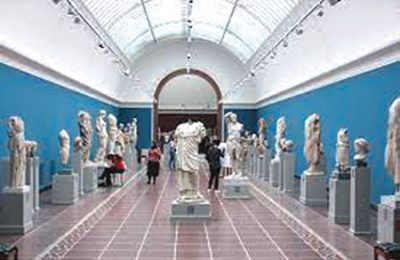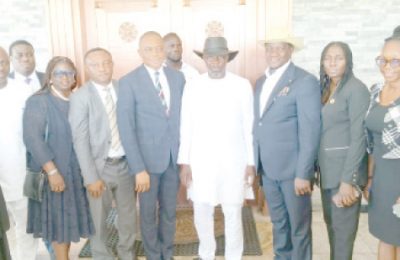The Federal Government has been tasked with developing policies and practices that will discourage the Japa syndrome among Nigerian youths.
A Professor of Political Economy at the Department of Political Science, University of Lagos, Olatunde Babawale, who made this call, said this will halt the trend of turning the country into a training ground for human resources for richer nations.
Speaking while delivering the 60th-anniversary lecture of the Adeyemi Federal University of Education, Ondo Babawale stressed the need to put a stop to education policies that will attract mediocrity.

He noted that despite the many challenges confronting the nation’s education sector, all hopes are not lost for the country, saying the Japa syndrome will soon be a thing of the past.
According to him, “education that is not located within the context of culture is untenable and incomplete. The ‘Japa’ syndrome underscores a deeply rooted social trend that highlights a complex interplay of socio-economic, political, and educational challenges confronting the Nigerian state and society.
“Most of our higher institutions admit students in excess of their carrying capacity. This leads to overcrowded classrooms, thereby creating a disabling learning environment.
Student inflow must be managed in such a way that we can match intake with the absorptive capacity of higher institutions.

“What we need to do is mobilise resources at our disposal and put all hands on deck to check the dismally dwindling fortunes of our educational institutions, put a stop to policies and practices in the education sector that glamorise mediocrity, begin a process of recovery for the system, and return our institutions to the pride of place they deserve to occupy in the global community.
“Education is far too important to be abandoned to the government. A whole-of-society approach must be adopted to sanitise the system.”
Stressing the importance of culture in education as a panacea to reflections on the ‘Japa’ syndrome and the Nigerian education system, he said the school curriculum must incorporate the pedagogy of culture in order to improve the education system in Nigeria.
He said the culture in education must be made a source of wisdom and knowledge in the same way that the mythology of Greece and Rome laid the foundation for modern Christian humanism and its critical liberal tradition in Europe and America.
“This culture in education, according to him, “will make us producers of ideas as opposed to consumers of other people’s ideas.”
The Professor of Political Economy, however, said if education was the way by which society deliberately transmits knowledge, skills, customs, and values from one generation to the next using the instrumentality of training and instructions, then culture must be made an integral part of the school curriculum.
“There is a need to enhance the quality and relevance of vocational and technical education programmes to respond to contemporary needs.
“By equipping students with practical skills, they will be prepared for employment or entrepreneurship opportunities.
“Similarly, this will create a basis for collaboration with industry stakeholders to conduct research, develop projects, and adjust a curriculum that aligns with market demands and can foster innovation and creativity in technical fields.
“We must begin to match our teaching and publishing in foreign languages with publishing and teaching in indigenous languages.
“If countries like China, Japan, Korea, etc. can teach their people in their own languages and publish even scientific books in those languages, nothing stops Nigeria from doing the same. Young people tend to learn better when they are taught in their mother tongues.
“There is a need to embark on a comprehensive, multi-dimensional, multi-sectoral reform of our political, social, economic, educational, and security systems,” Babawale said.
The acting Deputy Vice Chancellor of the institution, Dr Samuel Akintunde, said in his welcome address that there are many challenges facing the institution, but said the institution would continue to do its best to ensure there was no hitch in running the administration.
Akintunde said, “One of the challenges that we would like to bring to the fore with the hope that eminent personalities and alumni would assist in surmounting is that of inadequate power supply.
“It is highly intolerable to continue to purchase diesel in the required quantity to provide electricity. We therefore solicit individual and group financial contributions to have our hostels, offices, and laboratories powered by solar energy. We welcome your kind gestures in this regard.
“Also, those who would choose to bring solar engineers to fix solar energy in some structures are also welcomed. Those who want to build and run private hostels are also encouraged to make offers. I assure you of favourable consideration for the full recovery of your capital and profits.
“I use this opportunity to thank our dear President, President Bola Ahmed Tinubu, for being instrumental to the effective take-off of Adeyemi Federal University of Education. It is my joy to welcome all our guests, staff, and students to this historic day in the life of our nascent university, on which we celebrate 60 years of its existence.”
The Osemawe of Ondo Kingdom, Oba Victor Kiladejo, who also spoke at the event, said, “The idea of travelling out of our young people is not the only way out of prosperity.”
ALSO READ THESE TOP STORIES FROM NIGERIAN TRIBUNE







